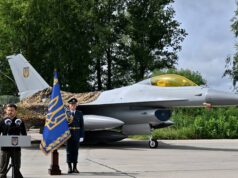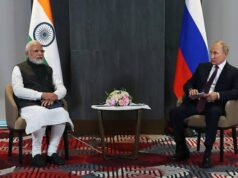World’s eyes on Taiwan presidential race amid regional tension

Taiwan’s presidential candidate registration has closed for the Jan. 13, 2024, election. This has cemented a three-way race between Vice President Lai Ching-te, the ruling Democratic Progressive Party’s candidate, New Taipei Mayor Hou Yu-ih, from the main opposition Nationalist Party and Ko Wen-je, former Taipei mayor and the second-largest opposition Taiwan People’s Party candidate.
The upcoming election is an important opportunity of choice, which can determine the future of Taiwan, and a campaign that affects U.S.-China relations and the state of affairs in East Asia is coming into full swing.
China, which looks to integrate Taiwan, has been critical of the Democratic Progressive Party as a force to push for Taiwan’s independence, and has refused to sit with the government of President Tsai Ing-wen who’s been in office since 2016. To counter this, the Tsai administration has worked to strengthen ties with the United States and Japan. The focal point of the presidential race is whether Taiwan will continue the Tsai strategies.
While all three candidates have said they will maintain the status-quo in regard to the island’s relationship with Beijing, the current president’s successor Lai has emphasized his unwavering stance with China. The opposition candidates, on the other hand, have criticized that the Democratic Progressive Party government has caused a threat to peace in the Taiwan Strait, underscoring the importance of dialogue with Beijing.
Terry Gou, the founder of Hon Hai Precision Industry Co., known by its trade name Foxconn, had announced his candidacy as an independent, but withdrew from the race. The Chinese base of Hon Hai Precision is under a tax-related investigation, a move that the Taiwanese authorities view as pressure by Beijing which wants to prevent anti-Tsai votes from splitting.
The Nationalist Party and Taiwan People’s Party attempted to endorse a joint candidate, but failed. Former President Ma Ying-jeou, who remains influential within the Nationalist Party, took on a leading role in efforts to field a unified candidate. It was learned that Ma’s close aide visited Beijing in early November, which fueled criticism from the ruling party as “China’s intervention.”
Following the two opposition parties’ failure to agree on a unified ticket, the Chinese government released a statement, saying that Taiwan was “faced with a choice between peace and war, and prosperity and decline,” and called for Taiwanese residents to “make the right choice.” It’s received as Beijing’s attempt to put the brakes on the Democratic Progressive Party government from remaining in power.
While Lai has led opinion polls by a large margin, some recent polls show Hou is closing in, apparently in a sign of people’s dissatisfaction with the long-running government and slow economy.
Taiwan held its first direct presidential election in 1996 and has since seen changes of power three times. Democratic politics has taken roots on the island.
Voters’ choices must not get distorted due to outside intervention. The international community should quietly observe where the will of the Taiwanese people leads.




